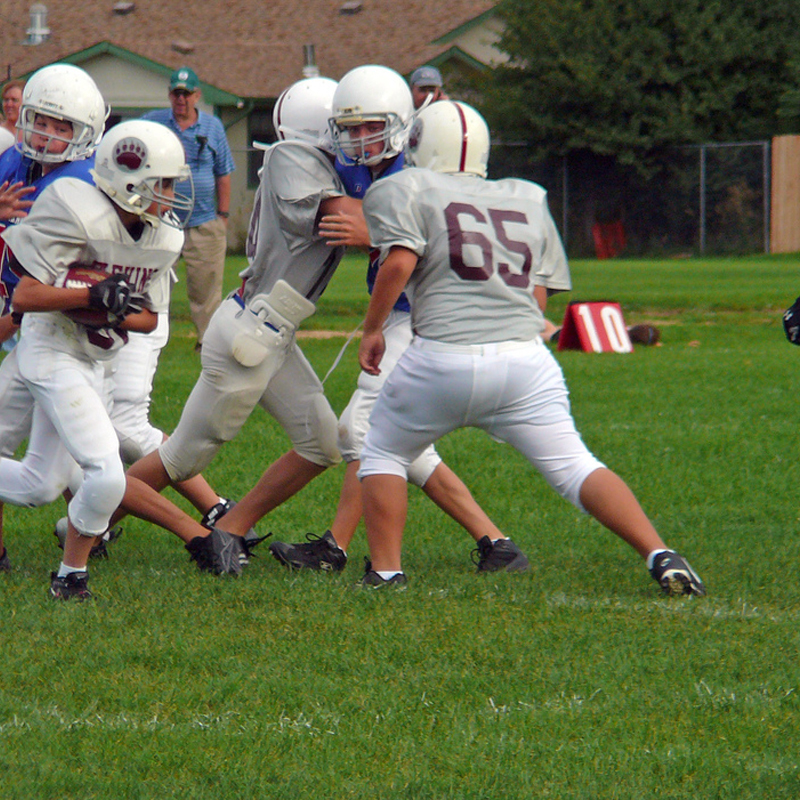- Study Says Most Parents Don’t Use Car Seats In Ride Share Vehicles Like Uber
- This 12-Year-Old Boy Is A Sophomore Aerospace Engineering Major!
- Fire Safety Experts Warn Of Hand Sanitizer Danger After A Mom and Kids Escape House Fire
- Recall Alert: Peaches May Be The Cause Of Salmonella Outbreak, 68 People Ill
- Summer Vacation In The Days Of COVID: Tips To Stay Safe
- How To Safely Grocery Shop During The Coronavirus Pandemic
- Michigan Teen With Vape-Related Illness Undergoes Double Lung Transplant
- Teen Kicks Off Anti-Vaping Campaign From Hospital Bed
- Teenager Receives Life Sentence For Strangling Sister To Death Over A Wi-Fi Password
- Toddler Falls To Death From 11th Deck of Cruise Ship
How To Tell If Your Child Has A Concussion


Ah, football — some might argue that it’s America’s true favorite pastime.
With so many fans at the college and professional levels, it’s only natural that young boys would be excited to don those pads and uniforms for their turn on the turf. Yet many parents are wary about allowing their children to sign up for such a high-contact sport.
And for good reason.
Concussions have been a hot topic in the football realm in the past decade, whether it’s at the pro-level or junior high kids. According to the National High School Sports-Related Injury Surveillance Study, more than 500,000 injuries related to high school football occurred last year alone. Concussions made up roughly one-quarter of the injuries.
These often debilitating brain injuries can have long-lasting effects — especially on young players. Changes in memory, mood, emotions and sleep patterns can all be warning signs for trouble after a particularly strong hit to the head.
According to the U.S. Centers for Disease Control and Prevention (CDC,) your child could be suffering from a concussion if he/she displays the following symptoms:
- Difficulty thinking clearly
- Feeling slowed down
- Difficulty concentrating
- Difficulty remembering new information
- Headache
- Fuzzy or blurry vision
- Nausea or vomiting early on
- Dizziness
- Sensitivity to noise or light
- Balance problems
- Feeling tired, having no energy
- More emotional
- Nervousness or anxiety
- Irritability
- Sadness
- Sleeping more or less than usual
- Trouble falling asleep.
The thing is, some of the above symptoms could appear immediately after the injury. Still others might not surface or be noticed for several days (or even months) afterward.
In rare cases after a concussion, a collection of blood could form on brain that could squeeze the brain against the skull. It’s crucial to seek emergency medical help immediately if this happens. Here are the particularly dangerous signs to watch for:
- One pupil is larger than the other
- Drowsiness or inability to wake up
- A headache that gets worse and doesn’t go away
- Slurred speech, weakness, numbness or decreased coordination
- Repeated vomiting or nausea, convulsions or seizures
- Unusual behavior, increased confusion, restlessness or agitation
- Loss of consciousness.
So the question remains: Is it safe to allow your child to play football?
One leading expert in concussions recently penned an opinion piece in The New York Times, pleading with parents to ban their kids from playing football altogether. “Our children are minors who have not reached the age of consent,” Dr. Bennet Omalu wrote. “It is our moral duty as a society to protect the most vulnerable of us. The human brain becomes fully developed at about 18 to 25 years old. We should at least wait for our children to grow up, be provided with the information and education on the risk of play, and let them make their own decisions.”
On the flip side, MaryBeth Horodyski of the National Athletic Trainers’ Association told CNN that parents should allow kids to play football as long as certain precautions are in place. “I would hope that every high school have an athletic trainer and an ambulance with two paramedics on site,” she said. “That’s minimum. Having a team physician is excellent.” Parents should also seek out programs that emphasize players keeping their heads up while in play, seeing what they are hitting and not “using their head as a ramming rod when tackling.”
Ultimately, this decision rests on the shoulders of parents. Arming yourself and your child with important information about concussions can go a long way in detecting and treating them if they should occur.
Via YouTube








Erin Morris
July 18, 2016 at 2:04 am
Phil Morris
Roseanne Benavente
July 18, 2016 at 5:46 am
Krystal Gomez Rene Gomez
Rocio Treviño De De la Fuente
July 18, 2016 at 8:46 am
Gabriel de la Fuente